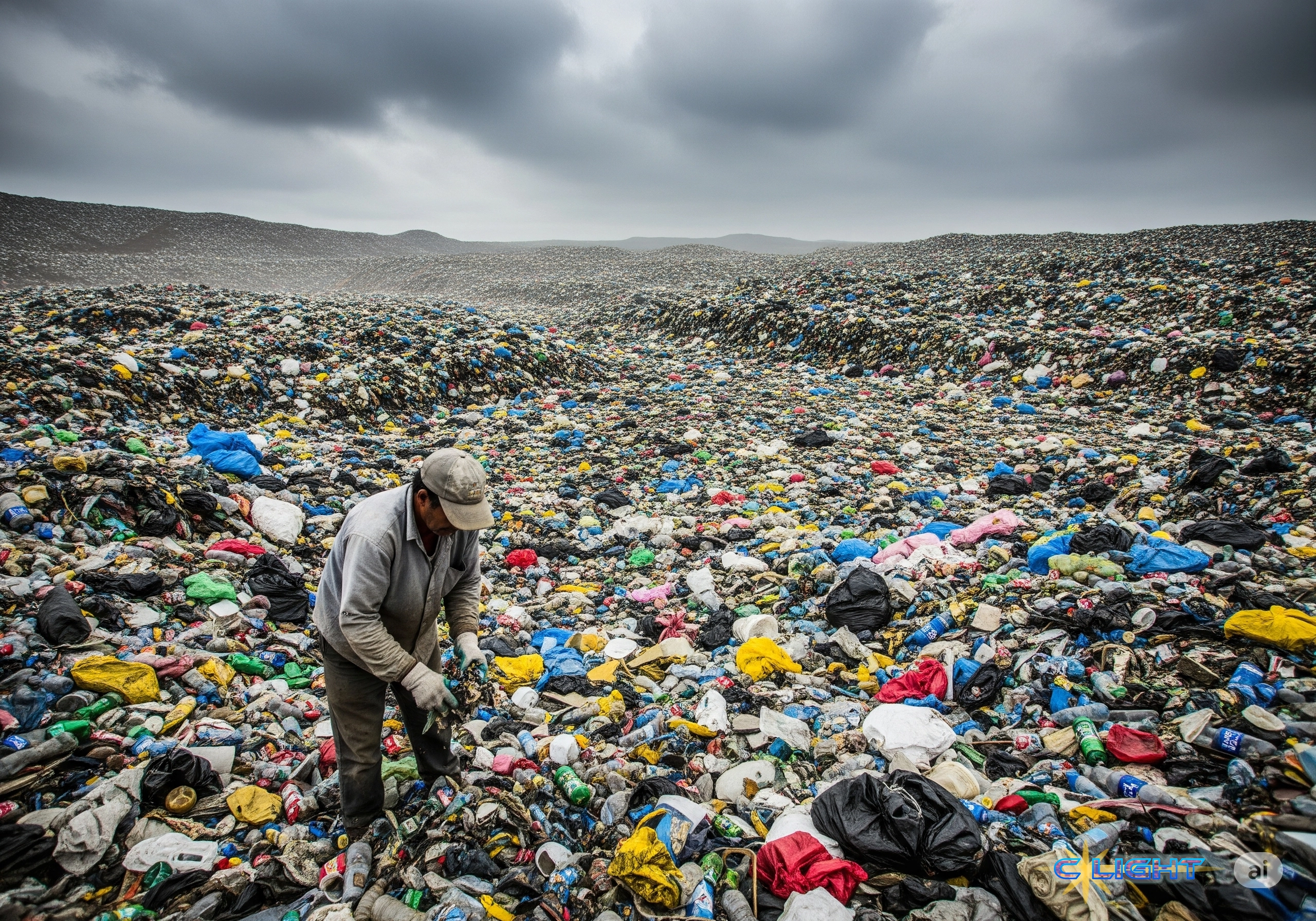5 minutes read time.
In the early hours of Friday morning in Geneva, after eleven grueling days and a final, marathon overnight session, the chair of the UN plastics treaty negotiations, Luis Vayas Valdivieso, brought a symbolic gavel down upon the proceedings. Crafted from recycled plastic bottle tops collected from a landfill in Nairobi, the gavel’s sound marked not the triumphant conclusion of a historic agreement, but the exhausted, acrimonious collapse of the entire endeavor. What was meant to be the final, pivotal step toward addressing one of the planet’s most pervasive environmental crises ended in a state of perilous limbo, with one observer declaring flatly, “Consensus is dead.” The failure exposes a deep, seemingly irreconcilable chasm between two powerful global blocs, revealing that the battle over plastic pollution is not just about waste, but about the entire future of the fossil fuel economy.
At the heart of the collapse lies a profound philosophical and economic conflict. On one side stands a “High Ambition Coalition” of roughly 100 nations, including the United Kingdom and the European Union bloc. This group argues that the plastic pollution crisis is fundamentally a problem of unchecked production. Their position is bolstered by a stark scientific reality: recycling, the long-touted solution, is a staggering failure. According to the Organisation for Economic Co-operation and Development (OECD), a mere 6% of the plastic produced globally is ever recycled. This pales in comparison to the rates for other materials like steel cans (71%) and paper (64%), a disparity explained by the sheer complexity of plastic itself. With, as one expert noted, over 16,000 different chemicals and numerous polymers and colorants in use, plastics are, by their very design, notoriously difficult to recycle. Compounding this is the fact that plastic production contributes significantly to climate change, accounting for an estimated 3.4% of global greenhouse gas emissions in 2019. With production having already soared from two million tonnes in 1950 to about 475 million in 2022—a figure projected to grow by another 70% by 2040—this coalition insists that any meaningful treaty must include binding curbs on the creation of new, or “virgin,” plastic. To do otherwise, they argue, is to try to mop up a perpetually overflowing bathtub without ever turning off the tap.
On the other side of the divide are the major oil and gas-producing nations, led by Saudi Arabia, Russia, and, in this instance, the United States, supported by powerful industry trade groups. For them, the issue is not the existence of plastic, but the failure to manage it as waste. With the world slowly transitioning away from fossil fuels for energy, the petrochemical industry views plastics as a vital and expanding part of their future economic model. “Plastics are fundamental for modern life,” argued Ross Eisenberg, president of America’s Plastic Makers. This bloc has vehemently resisted any language of production caps, pushing instead for the treaty to focus exclusively on improving recycling and waste collection infrastructure. To them, the problem is not the product, but the pollution, and any attempt to limit production is an unacceptable threat to their economic future.
The human and environmental stakes of this deadlock are immense. The talks were convened in response to mounting scientific evidence of the profound risks plastic pollution poses. Insidious microplastics have been discovered in every corner of the globe—from the deepest oceans to the highest mountains, in our air, our soil, and even embedded within human organs. The burden of this crisis falls disproportionately on developing nations and small island states. As the delegate from Palau stated on behalf of the island nations, “It is unjust for us to face the brunt of yet another global environmental crisis we contribute minimally to.”
The final hours in Geneva devolved into procedural hardball. The chair presented two different compromise texts in an attempt to find common ground. The final version, in a significant concession to the oil states, removed any mention of production curbs, instead focusing on reducing plastics with “chemicals of concern” and recognizing that current production levels are “unsustainable.” Even this watered-down text proved too much. In a clear sign of the deep-seated deadlock, the 184 nations present failed to agree to use either draft as a basis for negotiation. In a move that further highlighted the tension, the U.S. and Kuwait successfully requested to cut off comments from observer groups like environmentalists and Indigenous leaders.

The collapse was met with a mixture of diplomatic face-saving and raw fury. The UN’s Inger Andersen insisted “significant progress was made,” while China called the failure a “new starting point.” But the disappointment from the High Ambition Coalition was palpable. Delegates from Norway, Australia, and others said they were “deeply disappointed,” while the Cuban delegation lamented a “missed a historic opportunity.” Environmental groups were less diplomatic. “The inability to reach an agreement… must be a wakeup call for the world: ending plastic pollution means confronting fossil fuel interests head on,” said Graham Forbes, Greenpeace’s head of delegation, blaming a “handful of bad actors” for driving ambition into the ground.
The talks will resume at an as-yet-undetermined date, but with the fundamental conflict unresolved, the path forward is uncertain. Many now believe the only way forward is to change the rules of the negotiation itself, moving from a consensus model where any single nation can act as a spoiler, to a voting system. Until then, the world is left with a failed process and a plastic crisis that continues to grow, unchecked.
Discover more from Clight Morning Analysis
Subscribe to get the latest posts sent to your email.










